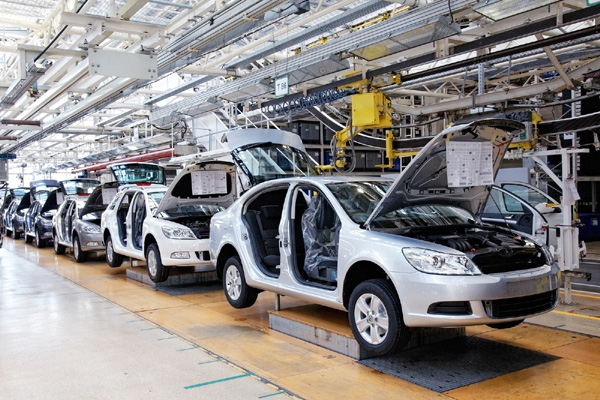The global automotive fuel injection systems market accounted for $61.61 billion in 2017 and is expected to reach $115.10 billion by 2026, growing at a compound annual growth rate (CAGR) of 7.2 per cent, according to a report by Stratistics MRC, a market research firm.
Factors such as growing demand of automobile industry among emerging countries and rise in advancements in fuel injection system are driving the market growth, said the report.
However, increase in the government stringent emission norms and its regulatory framework is hampering the growth of the market.
The fuel injection system delivers fuel or a fuel-air mixture to the cylinders by means of pressure from a pump. All diesel engine based automotive vehicles must use fuel injection by design because of diesel's greater viscosity and the need to overcome the high pressure of the compressed air in the cylinders.
Gasoline engines can use either a carburetor or a fuel injection, it added.
Based on the fuel type, gasoline segment has lucrative market share during the forecast period. As it is continuously replacing traditional gasoline port fuel injection system.
By geography, North America region is driven by increasing demand for automobiles in the region is on the rise; this is positively impacting the automotive fuel injection market.
Some of the key players in automotive fuel injection systems market include NGK Spark Plug Co, Infineon Technologies, Robert Bosch, Continental AG, Westport Innovations Inc, Keihin Corporation., UCI International Inc, Hitachi, Delphi Automotive PLC, Woodward Inc, Carter Fuel Systems, Denso Corporation, Magneti Marelli, and Ti Automotive Inc. – TradeArabia News Service
Industry, Logistics & Shipping
Automotive fuel injection systems market to reach $115bn

- Similar Stories

Bobcat debuts electric telehandler concept at Intermat

10,000 immediate job interviews done for Emirati talents

ESA picked 2024 Steel Sustainability Champion by worldsteel

Bayanat, Yahsat shareholders to vote on merger on April 25

Al Ojaimi Industrial launches JV with REPL in Riyadh

UAE-Oman railway project will help cut carbon emissions

Saudi industrial zone sees big jump in local food companies

$3bn UAE-Oman rail project enters implementation phase

Hitachi plans $1.5bn investment to boost transformer production

Alba achieves milestone at PS5 with Mitsubishi's turbine First Fire

Krohne fuels industrial decarbonisation with top solutions

AD Ports locks 20-year deal to operate, upgrade Luanda Port

UAE, Oman enter $35bn investment deals

Al Yamamah starts production at expanded Jeddah pipes factory

Schneider appoints El Jarroudi VP for Industrial Automation

Dubai World Trade Centre cluster names new finance head

Bosch banking on innovations, tie-ups and acquisitions

Ariston Middle East highlights sustainable solutions in UAE

National Forum for SMEs - Government Procurement Tuesday

Aramco in talks to buy 10% stake in China's Hengli Petrochemical

KBR's phenol technology selected by Sabic Fujian Petrochemicals

NSK linear guides to reduce lead times for European users

Sanad, Khalifa University to boost local aviation talent pool

RCJY future-proofs IT infrastructure with Nutanix

UK and Saudi Arabia to host major trade expo in Riyadh

Armstrong marks 90th anniversary, commits to innovation

Over 400 leading global brands to take part in Saudi food show

Family businesses ‘prioritise expansion, technology’

2nd Industrialists Career Exhibition opens, 800 jobs up for grabs

Almarai posts solid growth in Q1; revenue soars to $1.43bn
